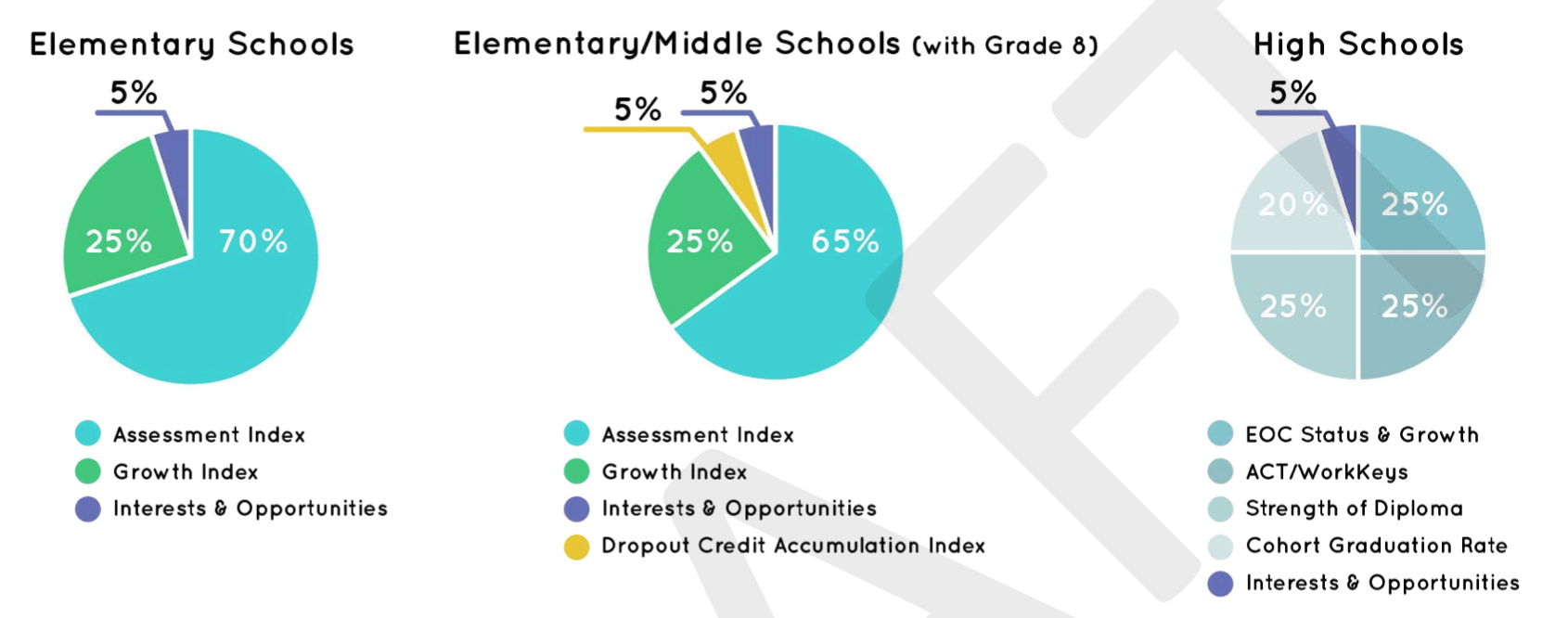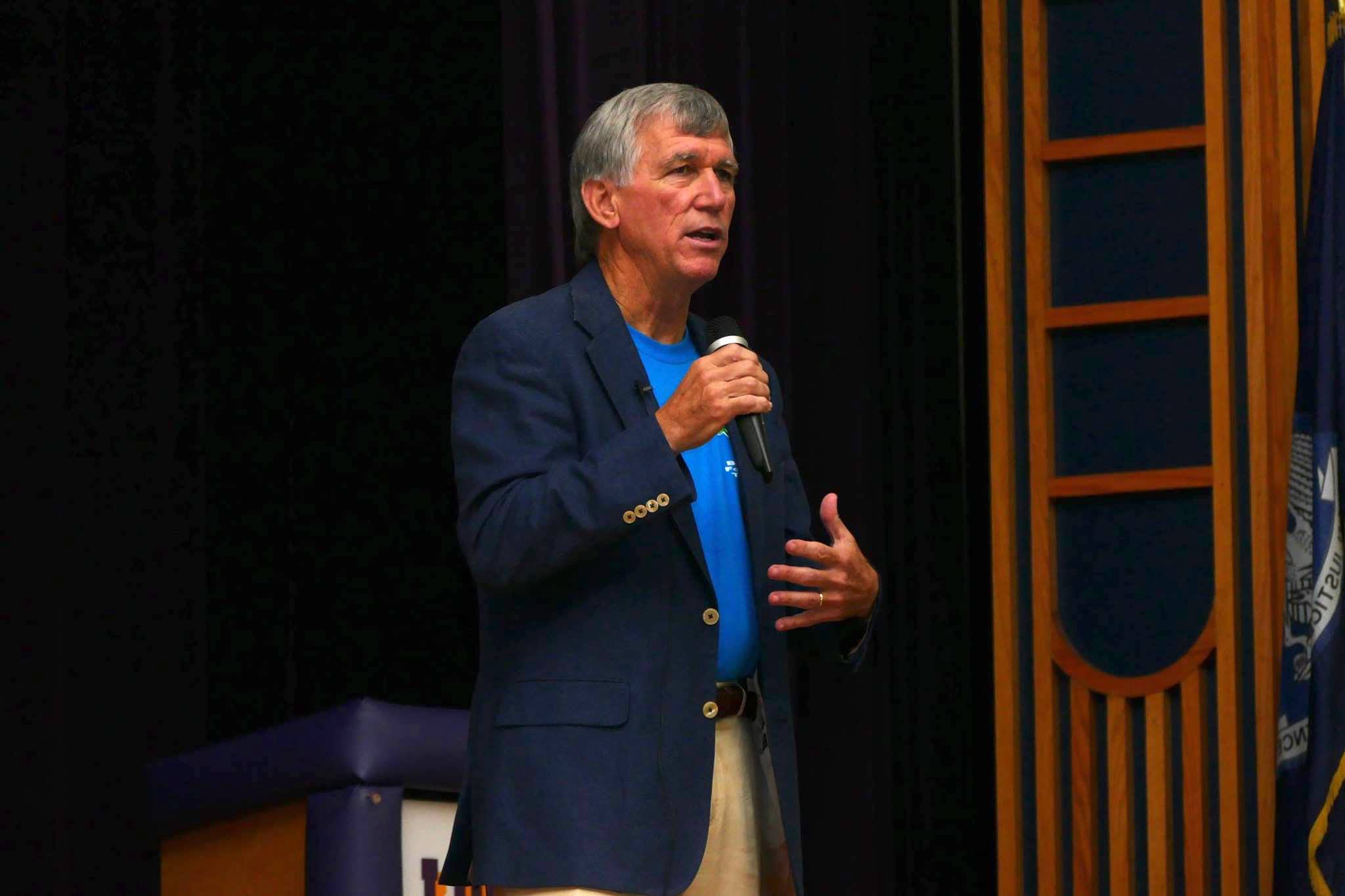Last week’s meeting of the Superintendents’ Advisory Council turned into a three-hour long soap opera as several school district leaders used the opportunity to attack State Superintendent John White over his plan to comply with the Every Student Succeeds Act (ESSA).
For the past nine months, White and the Louisiana Department of Education (LDOE) have been developing a plan to revise the state’s accountability policies to align with the mandates of the new federal education law, which Congress passed in December 2015 to replace the No Child Left Behind Act.
The latest draft of White’s ESSA proposal retains key elements of the current accountability system (such as school and district letter grades and performance scores) and establishes ambitious new achievement objectives for Louisiana’s students.
The most controversial change proposed by White would make student growth a much bigger factor in the formula used to grade schools: 25% of the overall score, up from 7% in the current model. Some education advocates argue that an increased emphasis on growth will distort school letter grades, making some schools appear higher performing than they would be based on proficiency alone.

Nevertheless, the Louisiana Accountability Commission, which advises the state Board of Elementary and Secondary Education (BESE), approved the new growth measure earlier this month. White now wants BESE to sign off on the proposal at its March meeting so the plan can be submitted to the U.S. Department of Education for approval before the start of the 2017-18 school year.
Supes’ criticism a delaying tactic
However, as Will Sentell of The Advocate reported, the dustup at the superintendents’ meeting had little to do with the details in White’s proposal and more to do with the personal agendas of a few district leaders who oppose the reforms embraced by the State Superintendent.
One of them is Central Superintendent Michael Faulk, a frequent critic of the state’s accountability policies, who pushed for a moratorium on school letter grades in the aftermath of last year’s floods. Faulk criticized White’s ESSA implementation timeline, claiming it would cause “Common Core-style upheaval” across the state – a statement which makes absolutely no sense. Unlike Common Core, White’s ESSA proposal doesn’t require a wholesale shift in how schools and districts operate; instead, it outlines how state officials intend to assess and support public schools.

St. Helena Superintendent Kelli Joseph joined Faulk in criticizing the timeline, offering vacuous reasons like, “There are still a lot of questions out there,” and “We don’t know where we are going.” While Joseph may not know where she’s going, it’s easy to understand why she might want to delay the new accountability policies, since St. Helena has long been one of the lowest-performing districts in the state. Although things have improved somewhat during her tenure, the district still has a low “D” rating and unless things improve the school board could be forced to find a new leader. That might also explain why Joseph wrote a “white paper” last year arguing that poor, rural school systems like St. Helena shouldn’t be held to the same standards as other districts.
Exchange w/ Kelli Joseph – Curated tweets by petercook
Things even got nasty when St. James Parish Schools head Ed Cancienne accused White of disregarding input from district leaders and manipulating them to achieve his policy goals, saying: “I know you have done a good job of dividing and conquering superintendents in this state.” It’s an ironic statement coming from Cancienne, whose imperious attitude and penchant for dirty tricks has landed him in hot water on several occasions. In any case, Cancienne never offered a coherent rational for why the ESSA plan should be delayed, much like the other critics who were making a fuss at the meeting.

At the end of the day, the objections raised at last week’s Superintendents’ Advisory Council lacked any real merit. In reality, a handful of district leaders are trying to create controversy in the hope that it might convince BESE to delay its adoption of the new accountability framework. That would be a mistake. While Louisiana has made big gains in student achievement over the past decade, we still have a long way to go. Without a strong accountability system, we can’t ensure that schools and districts continue on the path of improvement.


What a concept, an advisory council made up of experienced qualified educators/administrators ( unlike our State Superintendent and unlike the Accountability Commission loaded with noneducators representing $$$ not parents or children) finally holding White accountable. For someone who never attends these meetings you certainly do add some personal spin.
while accountability is important, environment impacts learning. We should focus on looking at that first!